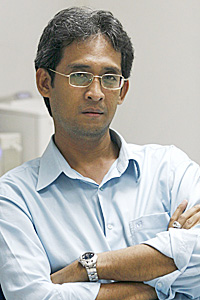
The government has declared ending corruption is a national priority and, of late, it has come up with various anti-graft campaigns.
But it should be aware that a key factor for the success of anti-graft campaigns is that they should begin at home.
The Public Health Ministry last week issued an announcement prohibiting its officials from using office supplies and assets for personal reasons to prevent conflicts of interest and save on power costs.

Soonruth Bunyamanee is deputy editor, Bangkok Post.
The announcement, signed on Dec 29, prohibits all 400,000 ministry staff from various activities including the personal use of office equipment, materials or supplies; personal use of ministry vehicles; assigning officials to drive ministry cars for personal business; parking personal vehicles overnight on ministry grounds; cleaning personal or family vehicles on ministry grounds and charging personal mobile phones at the office.
Among these stipulations, the ban on mobile phone charging, in particular, faced an avalanche of criticism. Many people and public health personnel slammed the measures, calling them out of touch with reality.
Numerous officials argued that they used their own mobile phones at work for the benefit of both patients and their colleagues.
Critics argued there are more important things for the Public Health Ministry to focus on if it wishes to end corruption rather than imposing these "nonsense" new rules.
Besides, these drastic measures omitted contentious-yet-common practices by doctors, including accepting cash as a "gift" from patients or their relatives during or after their treatment; leaving hospital during working hours to treat patients at their personal clinics; and receiving commissions for the procurement of medicines or medical equipment.
The backlash forced the ministry into making a U-turn and suspending the measures.
Dr Jessada Chokdamrongsuk, the permanent secretary for public health, conceded that the review was being made in the wake of public criticism, in particular concerns over the impracticality of such measures. Any decision will be made for the sake of the ministry's work and the public interest.
As a matter of principle, I personally agree with the ministry's initiative. But the concerns expressed by the public health staffers are understandable.
With regard to mobile phone charging, I think most of us, including me, have used our offices' facilities. Many staff not only charge their phones, but also use other personal electric appliances at work without being aware that the power consumed is at the cost of their employers.
Some even use power banks to store electricity from their office to use for their personal phones after working hours.
Frankly speaking, if we are really serious about tackling corruption, we should admit that such behaviour is on the edge of acceptability, though many of us would strongly argue that we also use personal mobile phones to facilitate our work.
Critics of such drastic measures are right that the Public Health Ministry has bigger fish it must fry if it really wants to weed out corruption. It's also a fact that many state officials have to spend their own money in the line of duty.
But I don't think the changes initiated by the Public Health Ministry were "nonsense".
I think we should pay more serious atttention to the ministry's goals. Negative feedback from the people and the ministry's staff to the drastic measures has raised the question of whether society is really ready to fight corruption.
The Public Health Ministry's move was actually in line with the draft bill concerning the prevention of conflicts of interest among state officials, which has passed its first reading by the National Legislative Assembly.
The law is different to existing laws which basically focus on corruption. The new law will deal with conflicts of interest in various grey areas.
Under the bill, state officials will be prohibited from any acts, ranging from taking gifts beyond a certain value, using their authority to favour particular entities in state projects, proposing laws or regulations which benefit their parents, children or relatives and using insider information for personal gain.
Using the resources of state offices for personal benefit is also among the prohibitions.
Officials will also be penalised should partners, parents or children act improperly.
The law, if promulgated, would be the toughest anti-corruption law we have ever had.
However, implementation of the law is still in question. Take a look at the public furore over the Public Health Ministry's controversial announcement.
Besides, some actions by top officials in the government have made me doubt if there will be serious enforcement.
My doubts stem from a revelation made by Deputy Prime Minister Wissanu Krea-Ngam last week that the National Anti-Corruption Commission is about to raise the current 3,000-baht limit on individual gifts for cabinet ministers. He claimed the limit, which is under an existing anti-corruption law that has been in place since 1999, is no longer realistic and the value should be increased to reflect inflation and increases in the cost of living.
His comment came after Prime Minister Prayut Chan-o-cha was accused of breaching the law for buying two Bang Kaew puppies for 6,000 baht each as New Year's gifts for Interior Minister Anupong Paojinda and Deputy Prime Minister Chatchai Sarikulya, during a mobile cabinet trip to Phitsanulok on Dec 25.
Mr Wissanu's claim contradicts the actions of the Public Health Ministry which tried to introduce stricter measures to counter corruption and conflicts of interest among state officials.
Even though it is just an idea, Mr Wissanu's remarks have resulted in negative publicity for the government's war against corruption.
Awareness and strong will are required to tackle corruption.
Definitely, stiff measures may compromise our comfort but we have to change for the better. Anti-corruption campaigns that cost a lot of money will fail unless all of us begin the practice at home.
